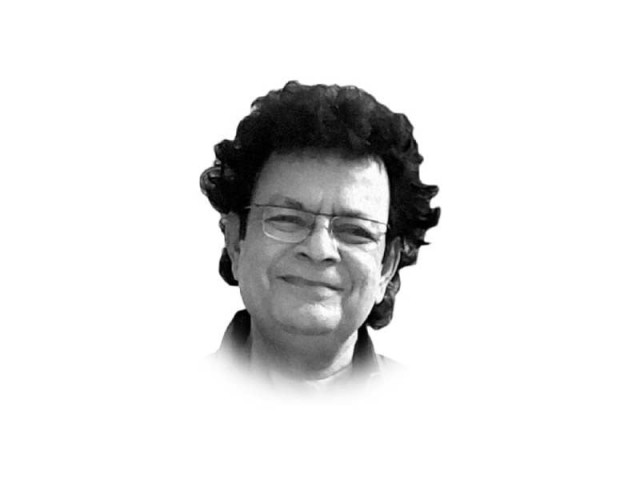Death is swallowing people
In Pakistan, 22 million people have been asking the same question: why me?

English writer John Bunyan begins his book, Pilgrims Progress, with these words written in 1848: “While wandering through the wilderness of this world, I stopped at one place for a while. There was a marshy land. I lie down in this place to relax and fell asleep. I had a dream. I saw a person dressed in rags, standing at a certain place, his face towards his house, a book in his hand and a heavy load on his back. As soon as I saw him, he opened the book and started reading. While reading, he started crying and shaking and when he couldn’t bear it anymore, he cried out in a mournful way, what should I do?”
It would not be wrong to say that a majority of Pakistanis today are suffering from the same situation. Man appears to be very strong and powerful, but actually he is not. According to French Philosopher Blaise Pascal, “Man is the grass growing on the bank of river, naturally he is weakest, but he is a thinking grass.” God has placed a limit of tolerance in man. He cannot bear more pains, troubles and suffering than this limit. He then sinks into despair and hopelessness. He feels as if he is stuck in a wall with all the air blocked. God forgives man, but troubles, worries and pains never forgive.
In the play Oedipus Rex by Greek tragedian Sophocles, Priest says, “Great Oedipus, O powerful king of Thebes! Must tell you, Thebes is tossed on a murdering sea and cannot lift her head from the death surge, a rust consumes the buds and fruits of the earth. The herds are sick; children die unborn, and labor is vain. The god of plague and pyre raids like detestable lightning through the city, and all the house of Kadmos is laid waste, all emptied and darkened. Death alone battens upon the misery of Thebes. You are not one of the immortal gods, we know; yet we have come to you to make our prayer as to the man surest in mortal ways and wisest in the ways of God.”
Put your hand on your heart and tell: Isn’t it exactly the same scenario that is visible in Pakistan today? Isn’t every person in Pakistan under death grip today? Isn’t death swallowing everyone? Isn’t everyone screaming in agony? Why have we innocent people been put in hell?
American writer Harold Kushner, who declares himself to be persecuted by life, wrote a book for people who are persecuted by life and deserve something better. This book titled, When Bad things Happen to Good People, is one of the most read books of the 20th century because it addresses one of our oldest and most universal question: why me? This is the most agonal truth we have to want to know and perhaps the most asked question in the world.
In Pakistan, 22 million people have been asking the same question: why me? Philosophers have been writing for thousands of years on: why is life the way it is? Because life is not always the way we want it to be.
Tim Hansel writes in his astonishing book, You Gotta keeps Dancin, that pain and grief are inevitable but being caught in suffering is optional. Nothing in the world comes for free; only humiliation, problems and failure come for free. The world does not devote itself to making you successful and problem-free. The present and future are not pre-written for you, you have to make it yourself. Now it depends on you whether you make it full of joy for yourselves or full of agony. For this you have to fight a long battle.
Call it bad luck or misfortune, we are losing this battle without fighting and we have accepted bad luck and misfortune as our luck and destiny. Our wish is that someone come from somewhere and fight our battle and make our life happy and joyful. How innocent our people are!
Published in The Express Tribune, January 18th, 2023.
Like Opinion & Editorial on Facebook, follow @ETOpEd on Twitter to receive all updates on all our daily pieces.

















COMMENTS
Comments are moderated and generally will be posted if they are on-topic and not abusive.
For more information, please see our Comments FAQ